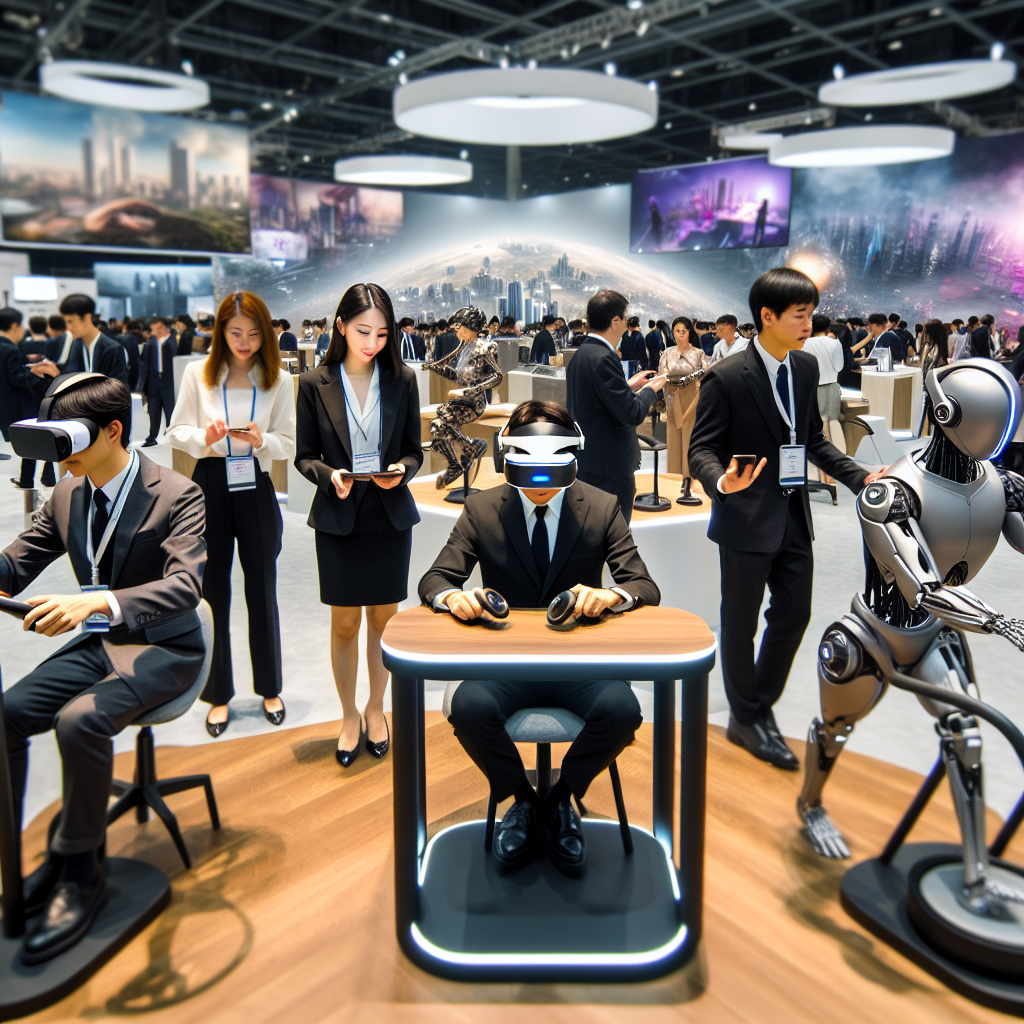Trade shows have long been a staple in the world of business, providing companies with a platform to showcase their products and services to a targeted audience. However, as technology continues to advance at a rapid pace, the traditional trade show model is slowly but surely evolving. Virtual reality (VR) technology is revolutionizing the industry, offering a new way for businesses to connect with customers and prospects without the need for physical attendance.
The future of trade shows is looking increasingly virtual, with VR technology providing an immersive and interactive experience that is unmatched by traditional methods. Companies are now able to create virtual trade show booths that can be accessed from anywhere in the world, allowing them to reach a much larger audience than ever before. This not only increases the potential for business opportunities, but also eliminates the need for costly travel expenses and logistical challenges associated with physical trade shows.
One of the key advantages of using VR technology for trade shows is the ability to provide a truly immersive experience for attendees. Users can navigate through virtual environments, interact with products and services, and even engage in virtual meetings with company representatives. This level of interactivity creates a more engaging experience for attendees, leading to a greater level of brand recognition and customer loyalty.
Another benefit of using VR technology for trade shows is the ability to track and analyze user behavior in real-time. Companies can collect valuable data on how attendees are interacting with their virtual booth, allowing them to make informed decisions on how to improve their marketing strategies and offerings. This level of insight is invaluable for businesses looking to optimize their trade show experiences and ensure maximum ROI.
In addition to the benefits for companies, VR technology also offers a number of advantages for attendees. Virtual trade shows are accessible from any device with an internet connection, making it easier for individuals to participate regardless of their location. This opens up opportunities for greater diversity and inclusion within the trade show industry, as individuals who may not have been able to attend physical events can now participate virtually.
Furthermore, virtual trade shows offer a more environmentally-friendly alternative to traditional events. By eliminating the need for physical transportation and infrastructure, companies can reduce their carbon footprint and contribute to a more sustainable future. This is particularly important in an age where environmental concerns are at the forefront of many businesses’ agendas.
As VR technology continues to advance, the possibilities for trade shows and events are seemingly endless. Companies are exploring new ways to leverage this technology, from creating virtual product demonstrations and virtual reality tours to hosting virtual networking events and conferences. The future of trade shows is truly virtual, and businesses that embrace this technology stand to benefit greatly in the years to come.
—
FAQs:
Q: How can companies ensure a successful virtual trade show experience?
A: Companies can ensure a successful virtual trade show experience by investing in high-quality VR technology, creating engaging and interactive virtual booths, and promoting their virtual event through various marketing channels. It is also important to provide attendees with clear instructions on how to navigate the virtual environment and interact with company representatives.
Q: Are virtual trade shows as effective as physical trade shows?
A: While virtual trade shows offer a different experience than physical events, they can be just as effective in terms of generating leads, increasing brand awareness, and building relationships with customers. Virtual trade shows have the added advantage of being accessible to a larger audience and can be more cost-effective for companies in the long run.
Q: Will virtual trade shows replace physical events entirely?
A: While virtual trade shows are becoming increasingly popular, it is unlikely that they will replace physical events entirely. Physical trade shows offer a unique networking experience and the opportunity for face-to-face interactions that cannot be replicated in a virtual environment. However, virtual trade shows will continue to play a significant role in the industry and complement traditional events in the future.
